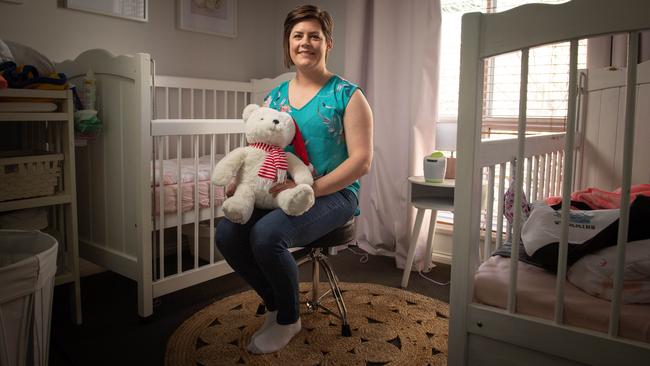Hundreds of children in state care returning home each year
New statistics show hundreds of children are leaving state care to return to their parents each year – but only a fraction of all of them.
SA News
Don't miss out on the headlines from SA News. Followed categories will be added to My News.
- Fewer foster carers abandon child protection system
- Centacare push to keep more siblings together
- Adoption overhaul proposed for South Australia
An average 225 children in state care are returning to their birth parents each year, new figures reveal.
And almost 60 cases have been referred to a new court program, focused on reuniting struggling families, since it began operating in January.
However, the children who can go home represent just 6 per cent of all young people in state care.
Some parents are unwilling or unable to make changes necessary to provide a safe home. But many work for months or years with social workers to address drug or alcohol addiction, mental illness, poverty or violence in the household in a bid to reclaim their children.
Data released by the Child Protection Department, requested by The Advertiser, shows children were reunited with their birth parents in 230 cases last financial year.
The figure has fluctuated between 175 and 261 a year over the past six years.
In the same period, between 445 and 826 children have entered state care annually.
The total number of children living with foster parents or extended family, or in state-run homes or emergency housing, has risen from 2631 in mid-2014 to 3984 at the end of June.

Department lead psychiatric director Dr Prue McEvoy said families who had children removed were often dealing with “chronic and interconnected” issues which were becoming “much more complex”.
“For reunification to be considered, we must see a psychological shift (in the parents),” she said.
Figures cited in the 2016 Nyland Royal Commission showed one in five children who returned to their birth parents was removed again.
Department chief executive Cathy Taylor said a child would only be returned “when it is safe”.
Elisa Carey and her husband became foster carers last year and have taken in two young sisters.
Ms Carey, 35, said they understood the placement would likely be temporary to give the girls’ parents “a chance to do what they need to for their family to come back together”.
“It gives them a breather,” she said.
“A lot of people I talk to say: ‘You get so connected (to the foster children), how could they go back?’ The way for me to deal with it is I see myself more as an aunty figure.
“I feel as though (the girls) are thriving, they’re meeting all of their developmental goals. It’s such a good feeling.”
To become a foster carer phone 1300 2 FOSTER.

